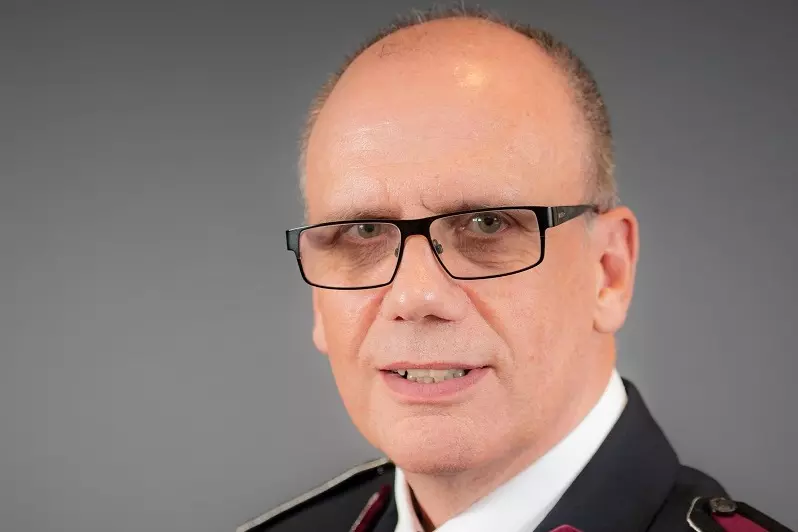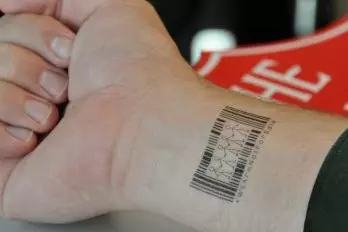Salvation Army awarded new government modern slavery contract
published on 29 Jun 2020
The Salvation Army has been appointed to the Government’s new Modern Slavery Victim Care Contract to manage the support of adult victims of modern slavery in England and Wales.
Through the new and extended contract, which runs for an initial five-year period, The Salvation Army and its specialist partners can build on expertise developed from helping more than 10,000 adult victims of modern slavery and human trafficking since July 2011.
Commissioner Anthony Cotterill, leader of The Salvation Army in the United Kingdom Territory with the Republic of Ireland, said:
“The Salvation Army has been privileged to work alongside our partners who have played a key role in helping to support thousands of victims of modern slavery as they rebuild their lives. We look forward to announcing more about our partnerships in due course.
“We are grateful for the opportunity to not only continue to serve these most vulnerable people but that through the new Victim Care Contract we can extend the support available to them at all stages of their recovery.
“Working closely with the Home Office and our partners, we will build on the improvements and partnerships we have delivered over the past nine years, continue to add value to the entitlements survivors of slavery receive and ensure their needs are properly managed and respected.
“For more than 150 years The Salvation Army has been working with victims of slavery with activities across the world to support the communities most at risk. Our commitment remains as strong now as it has been throughout our history.
“We will remain at the forefront of the fight to help today’s survivors overcome the challenges they face and protect other vulnerable people from becoming the victims of the future.”
The new contract allows The Salvation Army to extend support currently available to survivors of slavery at all stages of their recovery and introduces new services. All survivors will be entitled to a safe place to stay, where needed, and a support worker to help them access the support they require, which could include financial, legal and medical support, counselling and help getting a job or a home when they move on.
New elements in this latest contract will include specialised services to give the most vulnerable victims more time to reflect on whether they want to accept the support on offer and make it easier for those who choose to help with the important initial stages of police enquiries immediately after they have been rescued. It also provides procedures to keep in touch with people as they move on with their lives and help them remain connected to the support available to them.
Also embedded in this new contract are more robust processes for independent inspection which will help lead to even higher standards and reassurance around the Survivor Care Standards which The Salvation Army has already put in place across its current network. The Salvation Army’s Contract Management Team has also recently attained International Standards of Recognition in Business Continuity and Quality, Environmental and Heath and Safety Management.
Transition into the new contract will take place in the next six months, with a focus on ensuring the needs and entitlements of survivors like Sanu from Bangladesh are properly managed and respected. Sanu was held in slave-like conditions and forced to work seven days a week for seven years. He was very traumatised and withdrawn when he first arrived at a safe house but is now responding well to support. He said:
“Where I am now in a Salvation Army safe house, they see how I am and really work hard to help me get my personality back. They helped me to go to the mosque and to do volunteering and training. I feel lighter than I did before. Now every step of my life is helpful in every way.”
Throughout the current pandemic The Salvation Army has continued to support survivors of slavery to access the support they need as they begin to rebuild their lives. By adapting operations, moving some support online and introducing new services, such as electronic payments cards to deliver financial support, the network of safe houses and outreach workers supported by trained volunteers providing transport and First Responder services has carried on operating within Government guidelines.
Director of Anti Trafficking and Modern Slavery for The Salvation Army, Major Kathy Betteridge, said:
“The successful delivery of our current contract has depended on the hard work, skill, and teamwork of our staff, volunteers and partners. Together we have made huge progress in improving outcomes for survivors of slavery in the UK and beyond. This includes our work with the financial sector to develop bank accounts for survivors and the Department of Works and Pensions to improve access to their entitlements. We have also been providing expert training and guidance to a agencies and organisations across the criminal justice and border enforcement services, local authorities, foreign embassies, prison and immigration services, and commissioners of specialist addictions and mental health services.
“In particular over recent months, we recognise the extraordinary demands on everyone working under the contract and want to thank them all for their exceptional efforts to adapt the way we work and their rapid response to a fast-moving situation. We look forward to working together, as we introduce new services to meet the increasing needs and number of people being referred to us for help.”
In the UK and around the world The Salvation Army is helping victims of modern slavery to rebuild their lives when they are rescued from their captors, building on the work undertaken through the Government contract with additional support programmes provided through its own charitable funds. Alongside its global reach operating across 131 countries, 400 strong team of trained volunteers, network of church and community centres, The Salvation Army’s Victim Care Fund provides survivors with grants to help them transition to living independently such as furniture for a new home or equipment for a new job. Last year the Victim Care Fund supported more than 550 applications valued at £130,000 to meet needs where no other funding was available.

